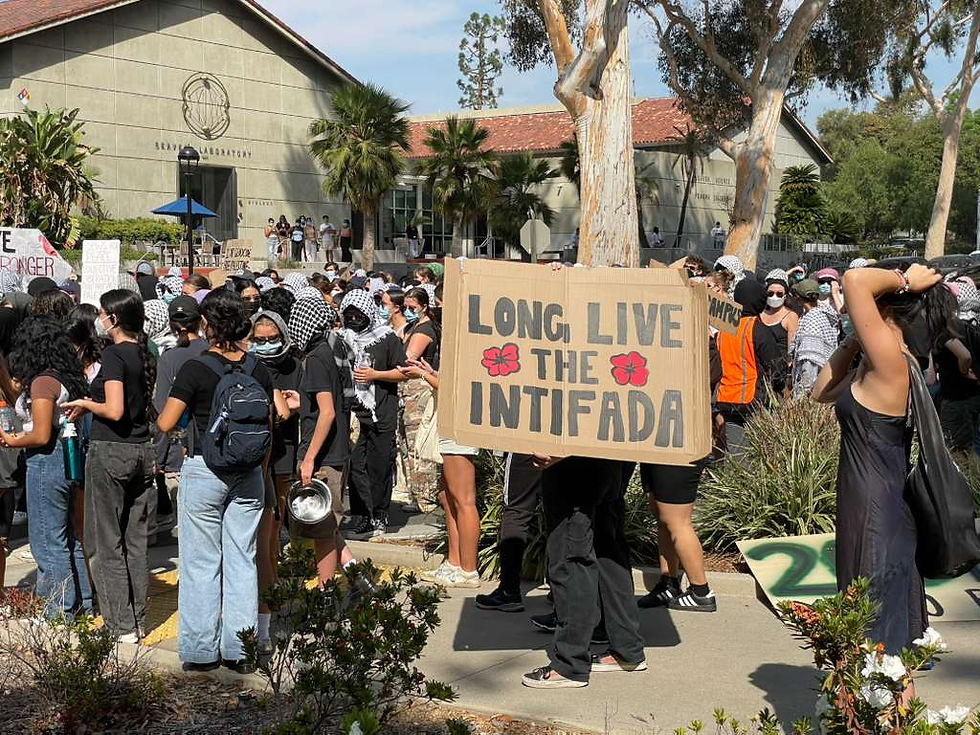FIRE Asks Pomona To Rescind Amendment Giving School Control Of Club Leadership
- The Claremont Independent

- Oct 9, 2020
- 3 min read
Earlier today, the Foundation for Individual Rights in Education (FIRE) published an article alongside an open letter to Pomona College asking that the administration rescind a required amendment that allows administrators to remove club officers at their discretion. Pomona has not yet responded to FIRE’s request.
The amendment was part of a series of requirements for student organizations reported on by the Independent last Monday. The amendment states that club leaders can be removed for reasons including, but not limited to, “[i]nappropriate behavior and/or language,” and “[d]irect knowledge of, advocacy for, and/or participation in illegal activities and/or behavior.” Clubs who fail to do so may lose access to club funding or be prevented from registering spaces and holding events on campus.
In its letter, FIRE stated that it was “concerned by Pomona College’s requirement that student organizations, as a condition of recognition, allow administrators to remove the organization’s leaders if they engage in ‘[i]nappropriate behavior and/or language’ or in ‘advocacy for . . . illegal activities and/or behavior.’” According to FIRE, “[t]his requirement interferes with the rights of student organizations to choose their own leaders, departing from both Pomona’s published commitments to freedom of expression and its obligations under California law.” FIRE also claims that “[b]ecause Pomona’s ‘Article XII’ requirement would be unconstitutional if required by a public institution, Pomona violates California law and betrays its public commitment to freedom of expression.”
FIRE objected to the inappropriate behavior clause by noting that:
“[T]he regulation is impermissibly vague, as whether or not speech is ‘inappropriate’ is a subjective inquiry. Regulations on speech must ‘give a person of ordinary intelligence a reasonable opportunity to know what is prohibited, so that he may act accordingly.’ The lack of objective criteria as to what speech is or is not appropriate leaves Pomona’s administration with unfettered discretion to punish any speech it does not believe to be appropriate. If that broad grant of authority were not enough, the regulation removes any restraint whatsoever, providing that the ‘[g]rounds for removal’ are ‘not limited to’ the enumerated categories.”
FIRE’s concern raises questions about the power the amendment grants the administration over clubs. As the Independent noted in its Monday article, “circumstances not on this list may give administrators subjective leeway in internal student club affairs.” Pomona’s administration has also previously demonstrated a willingness to intercede in club affairs, as when it suspended Pomona College Advocates for Survivors of Sexual Assault for “legal and confidentiality” reasons.
FIRE’s letter also noted that Pomona’s definition of “inappropriate speech” may conflict with established precedents of protecting speech on college campuses. Per FIRE, “speech remains protected even if others find it inappropriate, offensive, or shocking.” In the past, students have demanded that administrators “take action” against conservative journalists of the Claremont Independent for their “continual perpetuation of hate speech, anti-Blackness, and intimidation toward students of marginalized backgrounds.” While the administration had no power to do so at the time, as FIRE notes, the new amendment allows administrators to remove student journalists and editors “at the discretion of college officials for ‘inappropriate’ expression,” seriously imperiling the editorial independence of on-campus publications.
FIRE’s article also drew attention to the problems of the “illegal activity” clause of the amendment:
“[S]peech advocating unlawful activity is protected speech unless it amounts to unlawful incitement, which consists only of speech (1) advocating unlawful action, (2) intended to incite imminent unlawful action, and (3) likely to result in that action. These limits prevent the authorities from punishing speech that merely discusses whether unlawful action is a good idea.”
The threat of removal for advocacy of illegal activities cuts both ways, possibly undermining student organizations’ ability to advocate for civil disobedience. During the recent Black Lives Matter protests, many students expressed support for the property damage that took place as a byproduct. If they had been leaders of student organizations, under the new amendment, the administration would have grounds to remove them for doing so.
FIRE concluded its letter by requesting:
“[R]eceipt of a response to this letter no later than the close of business on October 23, 2020, confirming that Pomona College has rescinded the requirement that student organizations adopt Article XII, that organizations that have adopted it have been informed that they may remove it, and that all recognized organizations have been informed that Pomona will never exercise the rights in Article XII against protected expression.”
Pomona has not responded to the letter at the time of this article’s publication.
.png)



Comments